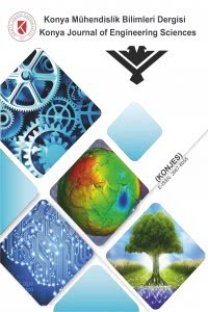Etnik işgücünün Batı Avrupa' nın küresel kentlerindeki rolü: Yeniden birleşim sürecinde (1990-1995) Berlin' deki Türk işgücü
Bu makale, üretim, mekan ve göç ilişkilerinin tanımladığı kuramsal bir çerçeve içerisinde etnik işgücünün küresel kentlerdeki sektörel rolünü incelemektedir. Çalışma, Türk işgücünün, Berlin'deki kentsel-sektörel katılımını çözümlemekte ve Batı Avrupa küresel kentleri için genelleştirmektedir. Doğu ve Batı Almanya'nın yeniden birleşiminin sonrasındaki Berlin'deki sektörel dönüşüm, yeni şekillenen küresel kent işlevleri ve etnik işgücünün belirginleşen iktisadi rolü, burada ana çözümleme alanlarını oluşturmaktadır. 1990'ların başlarında, Berlin'in işgücü piyasası içerisinde Türk işgücü katılımı, iki alanda ele alınmıştır: mesleki nitelik ve iş statüsü.
A case study of the role of ethnic labor in global cities of western Europe: In the reunification process (1990-1995), the Turkish labor in Berlin
Within a conceptual framework characterized by production, space and migration, this article studies the sectoral role of ethnic labor in the global cities. The study, analyzes the urban-sectoral participation of Turkish labor and generalizes this for the global cities of Western Europe. After the re-unification of East and West Germany, the sectoral transformation in Berlin, its emerging global city functions and the economic role of ethnic labor constitute the main analysis areas here. In the beginning of the 1990s, the participation of Turkish labor in the labor market of Berlin is discussed in two areas: occupational characteristic and business status.
___
- Bade, F.J. ve Kunzman, K.R., 1991, Deiridustrialization and Regional Development in the Federal Republic of Germany; in Rodwin, L. and Sazanami, H., Industrial Change and Regional Economic Transformation: The Experience of Western Europe, Harper Collins Academic,London, 70-104.
- Berlin Çalışma ve Sosyal Güvenlik Ataşeliği, 1985-1995, Yıllık Faaliyet Raporları, T. C. Çalışma ve Sosyal Güvenlik Bakanlığı, Berlin.
- Bruegel, I., 1993, Local Economic Development in the Transformation of Berlin; Regional Studies, 27, 2,155-159.
- Bundesanstalt für Arbeit, 1986, Amtliche Nachrichten der Bündesanstalt für Arbeit, Nürnberg.
- Bundesanstalt für Arbeit, 1990a, Arbeitsmarkt in Zahlen, Marz/Nürnberg.
- Bundesanstalt für Arbeit, 1990b, Zahlenspiegel-Au slander, Oktober, Nürnberg.
- Bündesanstalt für Arbeit, 1991a, Amtliche Nachrichten de'r Bundesanstalt fur Arbeit, Nürnberg.
- Bundesanstalt für Arbeit, 1991b, Arbeitsrriarkt in Zahlen, November, Nürnberg.
- Bundesanstalt für Arbeit, 1994, Amtliche Nachrichten der Bundesanstalt fur Arbeit, Nürnberg.
- Camagni, R.P., Cheshire, P.,De Gaudemar, J.P., Hall, P., Rodwin, L. ve Snickars, F., 1991, Europe's Regional-Urban Futures: Conclusions, Inferences and Surmises; in Rodwin, L. and Sazanami, H., Industrial Change and Regional Economic Transforrnation: The Experience of Western Europee, Harper Collins Academic, London, 301-315.
- Dış İlişkiler ve Yurtdışı İşçi Hizmetleri Genel Müdürlüğü, 1982-1992, Yıllık Faaliyet Raporları, T. C. Çalışma ve Sosyal Güvenlik Bakanlığı, Ankara.
- Friedmann,J., 1986, The World City Hypothesis; Development and Change, 17,1, 69-83.
- Gaspar, J., 1992, Societal Response tö Changes in the Production System; Urban Studies, 29, 6, 827-837.
- Rodwin, L., 1991 European Industrial Change and Regional Economic Transformation: An Overview of Recent Experiences; in Rodwin, L; and Sazanami, H., Industrial Change and Regional Economic Transformation: The Experience of Western Europe/Harper Collins Academic, London, 3-36.
- Scott,A. J., 1988, Metropolis: From the Division of Labor to Urban Form, University of California, Berkeley.
- Sternberg, R., 1995, Assessment of Innovation Centres-Methodological Aspects and Empirical Evidence from Western and Eastern Germany; European Planning Studies, 3,1, 85-97.
- ISSN: 1300-5200
- Yayın Aralığı: Yılda 4 Sayı
- Başlangıç: 2018
- Yayıncı: -
Sayıdaki Diğer Makaleler
TEVFİK AĞAÇAYAK, Veysel ZEDEF, Salih AYDOĞAN
Sakarya nehri havzası aylık akım verilerinin parametrik olmayan yöntemlerle trend analizi
Nadire ÖZEL, Serdar KALAYCI, Mehmet F. SEVİMLİ, MERAL BÜYÜKYILDIZ
Selimiye (Milas, Muğla) kuzeyinde Menderes masifi' nin mesoskopik tektonik özellikleri
Parametrik olmayan testler kullanılarak Sakarya havzası yağışlarının trend analizi
MERAL BÜYÜKYILDIZ, Ali BERKTAY
Çakırköy civarı (Gökçesu-Bolu) bitümlü kayaçlarının organik jeokimyasal incelemesi
ALİ SARI, Saday Azadoğlu ALİYEV, DERYA KOCA
Organik ve pH şok yüklemelerinin ardışık kesikli reaktörlerde (AKR) arıtım verimine etkisi
